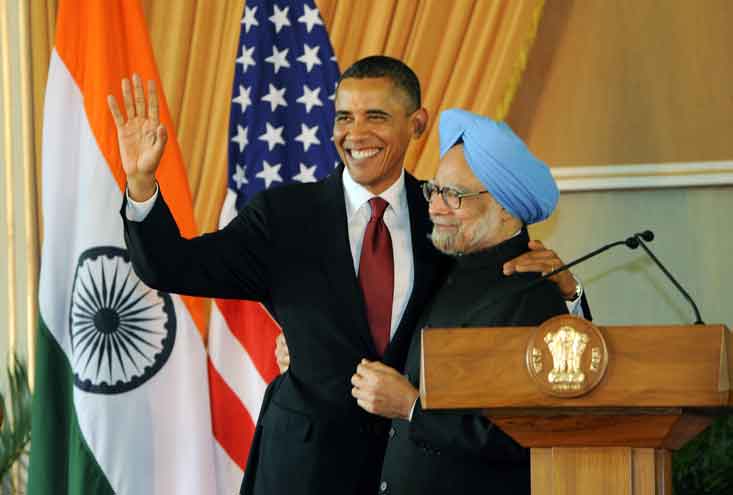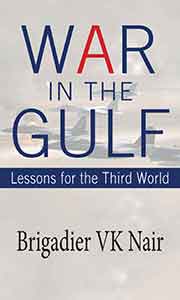The question which India does America want is intriguing for there are no two India’s but then does America want a strong India or a weak one – that is the difficult part. There are no straight answers. Ask official establishments of both India and US and the answer is of course a strong India but closer examination indicates hosts of ambiguities akin the Bush’s remark that ‘India has to fall in place’, a statement that can be construed any which way.
No statements emerge from the US on Chinese aggressive actions against India including recent incursions and intrusions.
Declassified 1962 vintage US documents disclose US view that India and China should never be permitted to join hands as that would not be in US interests, implying they should remain at loggerheads. Ensuing years have been worse. Gary Bass, the Princeton historian, in his latest book ‘The Blood Telegram: Nixon, Kissinger and a Forgotten Genocide’ reveals how US President Richard Nixon and Secretary of State Henry Kissinger supported Pakistani military dictatorship’s brutally quashing results of a historic free election in East Pakistan (now Bangladesh), how Nixon-Kissinger hated India and Indira Gandhi and tried their level best to oppose any Indian action despite the Pakistani army crackdown killing hundreds of thousands of people and sending 10 million refugees fleeing to India – one of the worst humanitarian crisis of the 20th century.
Bass writes further that they even secretly encouraged China to mass troops on their Indian border and illegally supplied weapons to the Pakistani army, all while censoring American officials who dared to speak up. The authenticity of this cannot be doubted with these facts based on White House tapes. Bass says that Kissinger proposed three “dangerous” initiatives against India: illegally allow Iran and Jordan to send squadrons of US supplied aircraft to Pakistan; secretly ask China to mass its troops on the border with India, and; deploy a US aircraft carrier group in Bay of Bengal to threaten India. He urged Nixon to stun India with all three moves simultaneously. Bass goes on to say, “In fact, to help Pakistan, Nixon and Kissinger knowingly broke US law, and did so with the full awareness of George H W Bush, H R Haldeman, Alexander Haig and others.”
Recently at the UN General Assembly, Obama said, “The US has a hard-earned humility when it comes to our ability to determine events inside other countries…The notion of American empire may be useful propaganda, but it isn’t borne out by America’s current policy or public opinion.” What Obama presented to global leaders is an image of America as a reluctant superpower, ready to confront Iran’s nukes and kill its enemies with targeted drone strikes, but unprepared to embark on open-ended military missions in Syria and other troubled countries. Defeat in Afghanistan, cumulative losses in Iraq-Afghanistan and strong public opinion at home has obviously forced the new US foreign doctrine of switching from direct military domination to more subtle manipulation, controlled engagement and boots on ground replaced by proxies but in the case of India, US manipulation has been ongoing for decades more in the interest of Pakistan and China. This, even despite occurrences like India downplaying the USA NSA snooping scandal while Dilma Rousseff, the Brazilian President has thrown it back at the US.
Does the US realise ramifications on India of post 2014 Afghanistan with large parts under Taliban control?
Glenn Greenwald wrote in the Guardian that more the US knows about what other countries are doing, not just their governments but their companies and populations, the more power the US has vis-à-vis that country. But do other nations do like US NSA and does the argument that everyone snoops on governments and diplomatic missions hold while also claiming moral high ground as the global policeman? Doesn’t this snooping include blackmailing political hierarchy of the target country to facilitate geopolitical maneuvering to suit US interests?
It is no secret that cartographic aggression of India affecting J&K and India’s northeast was first initiated in the US, by no means innocent as it is made to be. No statements emerge from the US on Chinese aggressive actions against India including recent incursions and intrusions. But then speculation is ripe that US is going to ask its allies, even Japan, to avoid actions which displease or provoke China – indirectly reassuring China. In the same stream, Think Tanks in both US and Canada were actively engaged in planting suggestions for India to withdraw from Siachen to consolidate China-Pakistan Himalayan honeymoon.
What about terror factories of Pakistan – institutionalised and with full military support? Sure US needs Pakistani proxies for honourably exiting Afghanistan plus boots on ground in Syria and Iran, but if US wants a strong India, would it look the other way as Pakistan repeatedly terrorises India? John Kerry’s statement that Pakistanis “have lost some 6000 people just last year in their efforts to go after terrorists” is no consolation. Has he taken into consideration the institutionalised killings of Shias, Christians and non-Sunnis in Pakistan? He should read post 2014 described by Agha H Amin, former Pakistani army officer about ‘the Pakistan sponsored Taliban who regard all Shias, Ismailis, non-Pashtuns, moderate Pashtuns as infidels who deserve to be massacred and a Pakistani political party leading Pakistan fully subservient to the Pakistani military and ever growing reservoir of economically deprived youngsters continuing to fill ranks of extremists and suicide bombers. Beside no country can remain unaffected if it breeds terrorism’.
The CENTO-SEATO US-Pakistan links may blind US policy makers, not fool others. The fact that Pakistan has been given free hand to wage proxy war on India is evident by the way the Lashkar-e-Taiba has been permitted to grow. Agreed US did issue statements post attack on our Parliament and 26/11 Mumbai terrorist strike but was Pakistan questioned about the follow up? As per one report, the 26th September 2013 terrorist attack in Samba Sector was by Pakistani SSG personnel who intended to target an Army School but the abducted driver did not know its location. President Obama did make a mention to Prime Minister Manmohan Singh when they met but had children been butchered in the Army School, the response would likely have been no different. Does the US realise ramifications on India of post 2014 Afghanistan with large parts under Taliban control?
So what does US seek from India within the Indo-US Strategic Partnership: One, fully support US in Indo-Pacific waters as part of US Asia Pivot; Two, keep absorbing Pakistani terrorism without reacting physically; Three, keep the Chinese in good humour in line with US wishes; Four, give more and more concessions (territory included) to China and Pakistan; Five, purchase maximum nuclear reactors, nuclear fuel, defence equipment and technology from US and; Six, joint Indo-US defence ventures without transfer of technology? Sure the first Indo-US commercial agreement on civilian nuclear power deal has been clinched but is the Indo-US strategic partnership reduced to a US favoured transactional arrangement and the strategy part covering only the Indo-Pacific waters. As to whether US want a strong or weak India, readers can take their call.






